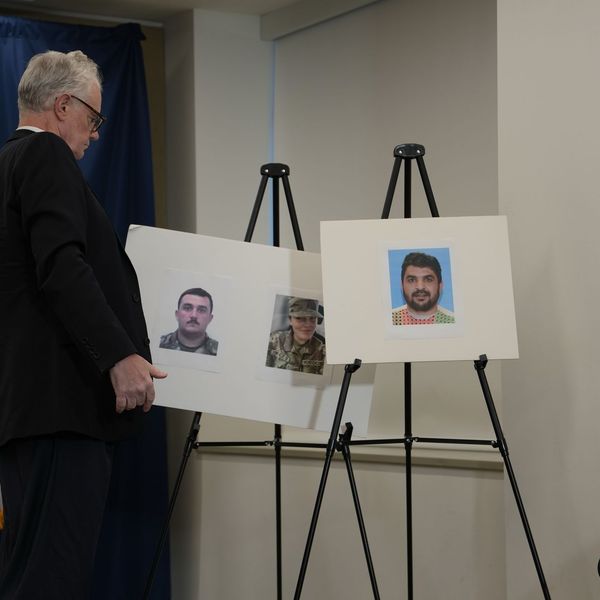With passion and eloquence, President Barack Obama has renewed efforts to reduce gun tragedies. His proposals to strengthen safety measures and background checks for gun purchasers deserve support. But it's disquieting to hear a president deliver heartfelt orations against "gun violence" at home while he conveys scant remorse about imposing it on innocent people abroad.
No less than the children whom Obama has movingly described as victims of gun violence in the streets and schools of America, the lives of many kids abroad have been -- and continue to be -- shattered or ended by U.S. firepower from the air. The fact that they aren't targeted doesn't change the predictably grisly human consequences of decisions that continue to be made in the Oval Office. And even if one accepts the faulty rationales for the ongoing U.S. drone attacks and other airstrikes in several countries, it should give us pause that there has been such a lack of presidential expressions of regret over civilian victims, other than occasional perfunctory statements.
I don't question President Obama's sincerity when he sheds public tears over the victims of gun violence. I do wish, however, that he would enlarge his field of compassionate vision to include those directly suffering from what Martin Luther King Jr. called "the madness of militarism" -- in this case, U.S. militarism. In 2016, no institution is more in need of gun control than the Pentagon.
Like his predecessors in the Oval Office, this president has not hesitated to lavish praise on young Americans for engaging in the gun violence of warfare. But, hidden in plain sight, a basic contradiction goes unmentioned in public discourse: If using guns to kill people in certain others' countries is to be encouraged and lauded, how effectively can it be discouraged and condemned in our own country?
The easy answer, of course, is that a bright line separates the illegitimate use of guns in the murderous rampages of Columbine, Sandy Hook and San Bernardino from the legitimate use of U.S. armaments in warfare. But to alternately condemn and glorify the use of guns in the hands of young Americans is apt to make the line more hazy than bright. And to pretend that the glorification of militarism in our society has nothing to do with its burgeoning gun culture is as convenient as it is dubious.
We routinely confer upon our presidents the psychological and political power to give reflexive absolution -- even blessings -- to the most violent of sins that include the killing and wounding of innocent people. The favorable media coverage and commentaries were profuse, for instance, when Obama traveled to Afghanistan early in his presidency, donned a bomber jacket and proclaimed to American troops that "the United States of America does not quit once it starts on something."
In effect, he was celebrating a large-scale form of gun violence.
Shortly before that appearance by Obama at the Bagram Air Base, I visited the Helmand Refugee Camp District 5 on the outskirts of Kabul. There, I met a seven-year-old girl named Guljumma, who talked about what happened one morning when she was sleeping at home in southern Afghanistan's Helmand Valley. At about 5 a.m., a bomb fell and exploded. Some people in her family died. She lost an arm.
Since then, a lot of maiming and killing has resulted from U.S. bombing in Afghanistan and elsewhere. Yet President Obama has never tearfully deplored the consequences of such mega-gun violence. Perhaps that is largely because, in political and human terms, the victims of U.S. bombing remain abstractions.
These days, American officials trumpet and praise the U.S.-led bombing campaigns in Iraq and Syria, which have involved close to 10,000 airstrikes since mid-2014. It is left to others to count the human costs. The independent journalistic website AirWars.org, which does meticulous investigations, has scrutinized the available evidence; even a conservative assessment of available data leads to the conclusion that the coalition airstrikes last year killed at least several hundred civilians, including many children.
None of this is to downplay or discount the gravity of the ongoing crisis of carnage from guns in American homes, schools and public places. What we need is a single standard when the bell tolls. Gun violence should be universally recognized and challenged as inhumane -- even when those who inflict it are offering lofty rhetoric from high places close to home.


